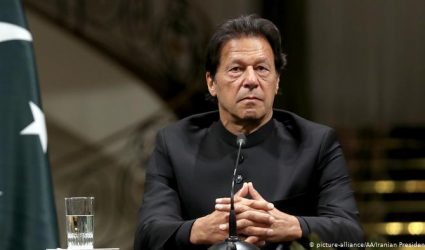Pakistan government’s new social media rules draws criticism

(Aljazeera) – Pakistan’s government has approved new rules for regulating cyberspace which opponents say could be used to stifle dissent and free speech.
Under regulations that were approved by the cabinet late last month but were not immediately made public, social media companies will be obliged to help law enforcement agencies access data and to remove online content deemed unlawful.
Companies that do not comply with the rules risk being blocked online, according to a copy of the regulations seen by Reuters news agency.
The approval of the new rules follows accusations by opposition parties that Prime Minister Imran Khan’s government has sought to intimidate and silence its opponents and allegations of media censorship. Pakistan’s military has also faced accusations of cracking down on media and free speech.
But Shoaib Ahmad Siddiqui, the top official at the Ministry of Information Technology that wrote the regulations, said the new rules would help “identify and weed out unwanted and slanderous online content.”
“We needed to do it to uphold the integrity, decency and respect of individuals and sanctity of institutions,” he said.
The new rules on social media are described by the authors as intended to prevent live streaming of online content relating to “terrorism, extremism, hate speech, defamation, fake news, incitement to violence and national security.”
Social media companies will be obliged within 24 hours to respond to a request to remove “unlawful” material or six hours in emergency cases. They will have three months to register with authorities in Pakistan and must have a physical presence in Pakistan.
When demanded, the companies will be required to provide subscriber information, traffic data, content data and any other information or data that is sought, the regulations stipulate.
The rules also state that interpretations of the regulations by the authorities in Pakistan “shall take precedence over any community standards or rules or community guidelines or policies or any other instruments devised by a social media company.”
‘Overreach’
Nighat Dad, who runs the not-for-profit Digital Rights Foundation in Pakistan says the new rules will give the authorities unflinching powers to stifle social media.
“The worrying part for me is that the definition around extremism, religion or culture is so wide and ambiguous and that means they have these unfettered power to call any online content illegal or extremist or anti-state,” she told Reuters.
“I do fear that this will be used against dissent, free speech and for political gains”.
Farieha Aziz, the founder of Bolo Bhi a digital rights advocacy group, also voiced concern.
“This is the kind of overreach we were worried about,” she said. “They’re trying to go beyond the ambit of the law, trying to go above and beyond what the law allows them to do.”

